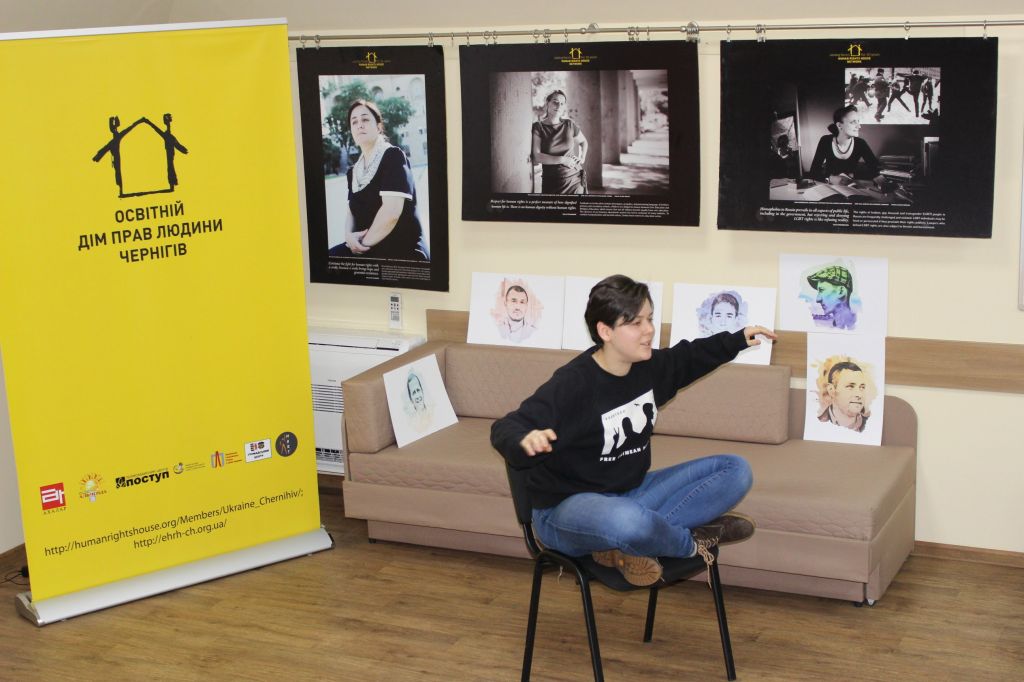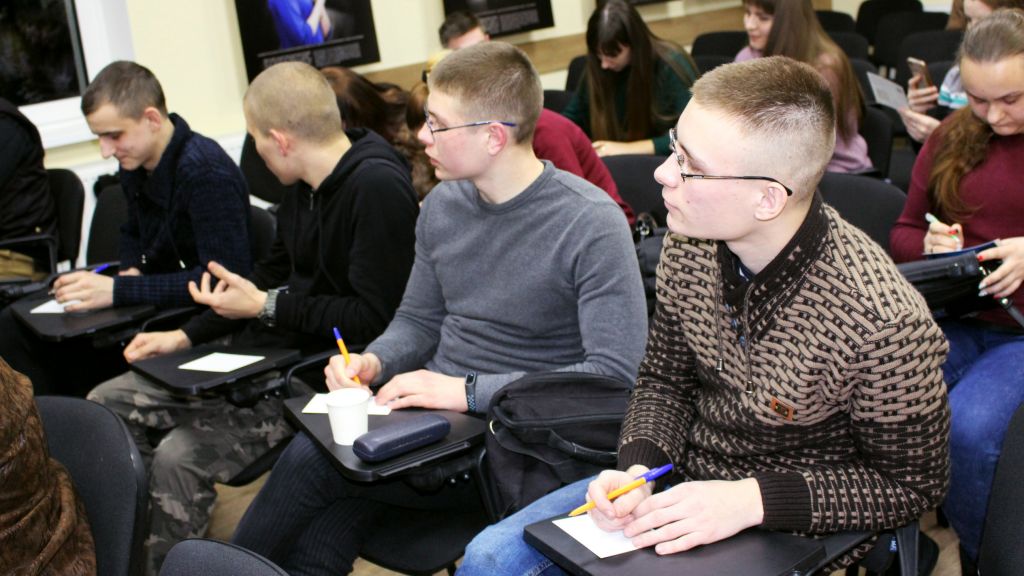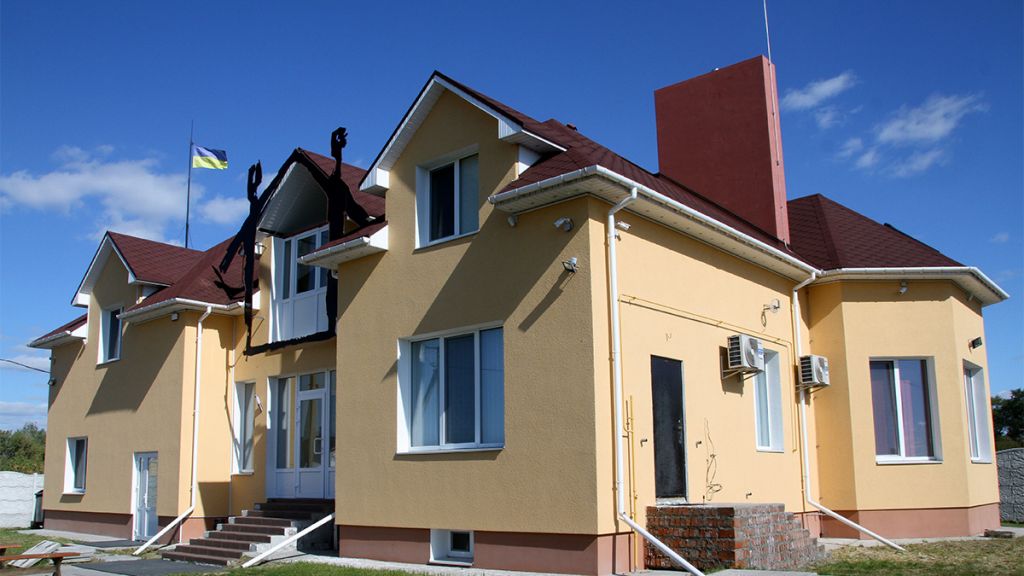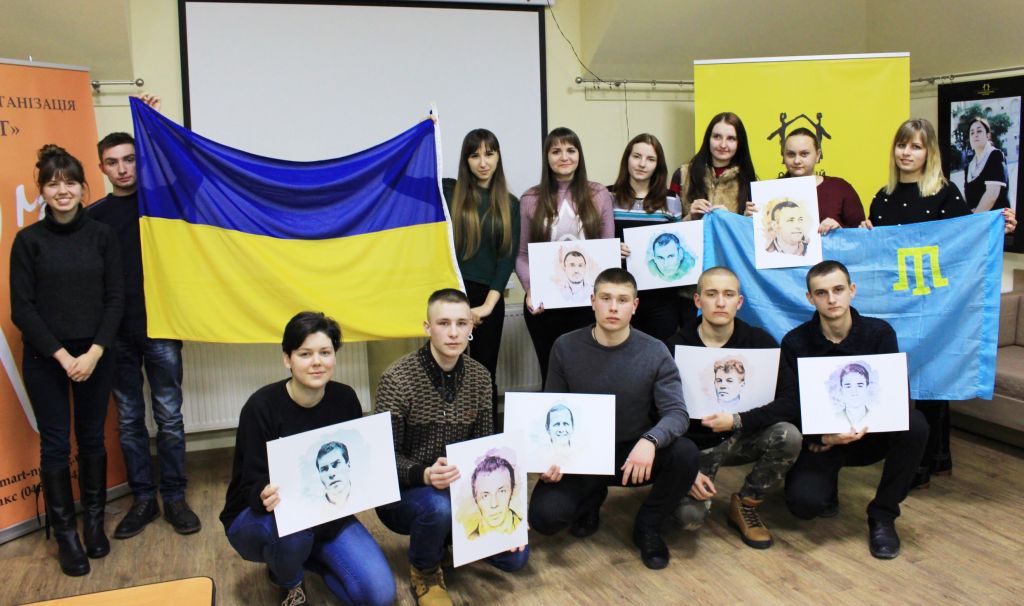Participants learned about events surrounding the beginning of the Russian occupation of the peninsula, and watched and discussed the documentary film “Crimea. Undefeated,” detailing the resistance of the occupation in Crimea.

Maria Sulialina, one of the event’s guests from Yalta, Crimea, shared her memories of the beginnings of the occupation with participants
“I remember that people began to donate money and buy concrete blocks and then those blocks were taken to the military units to improve their protective ability. My father also delivered those concrete blocks and my mother and grandmother were very worried. It’s hard to talk about,” described Maria Sulialina, one of the event’s special guests from Yalta, Crimea, as she shared her memories of the time.
Event participants discussed the capture of the Crimean Parliament, questioning whether casualties could have been avoided and why the police department did nothing – a question, which still has no answer.
The event hosted a diverse range of participants including residents of Chernihiv and students of the Academy of State Penitentiary Service. They signed postcards with words of support to prisoners of the Kremlin, including wishes of patience, invincibility, endurance, faith in themselves and the hope that they will soon be free.

Participants writing postcards to Crimean political prisoners.
Why the 26th of February? On this date in 2014, around 12,000 people took part in a peaceful rally in Simferopol’s main square to show support for the territorial integrity of Ukraine. Since then, Crimean public figures and patriotic Ukrainians have been persecuted, threatened, and bullied, some people have disappeared. Some have been found dead, while others became prisoners of the Russian Federation. Currently, there are 64 Crimean political prisoners in the Russian Federation.
Educational Human Rights House Chernihiv

A centre for Ukrainian organisations, Educational Human Rights House Chernihiv is a modern and comfortable educational conference and resource centre with accommodation facilities. It was founded by organisations from different regions of Ukraine, and welcomes civil activists and organisations engaged in civil and human rights education. It operates the educational program “We Understand Human Rights.”
The House was bought in January 2014, in the middle of the Euromaidan protests and just ahead of restrictive laws being adopted on freedom of assembly and association, and the annexation of Crimea. Still, amid this chaos, the founders established the House that year, and included organisations from across Ukraine.





